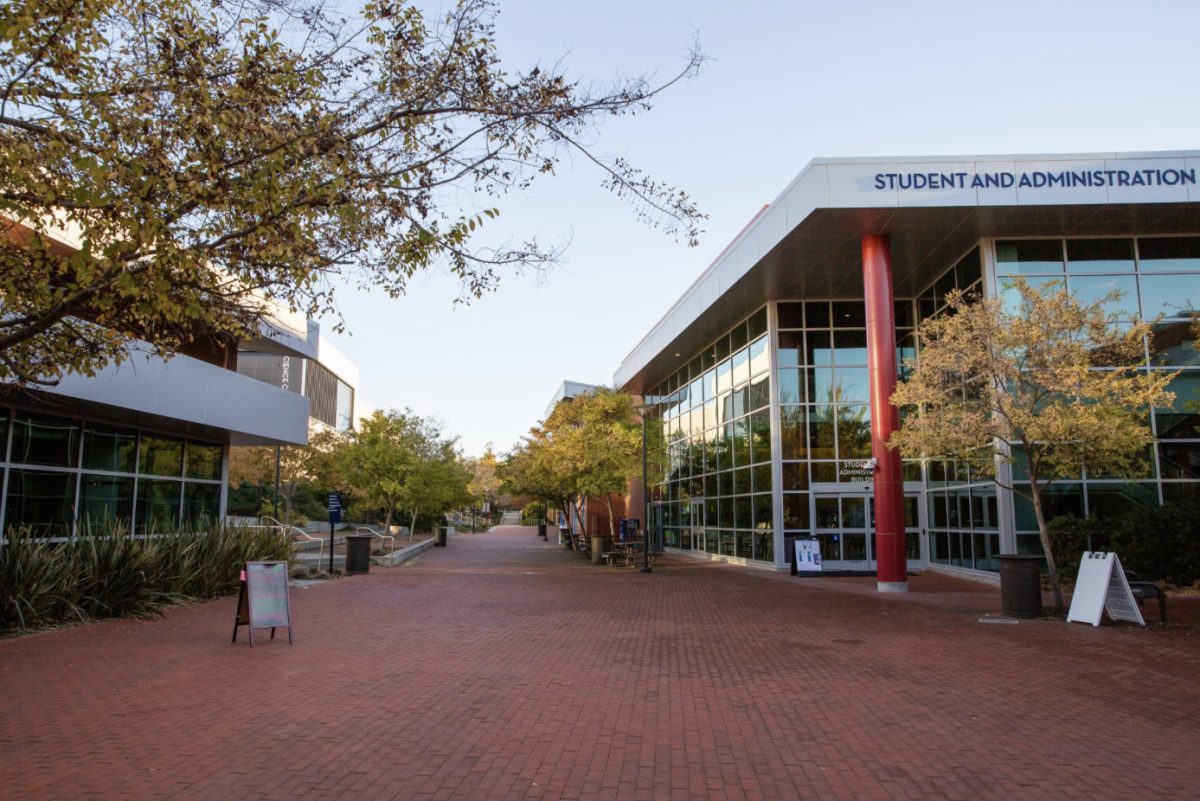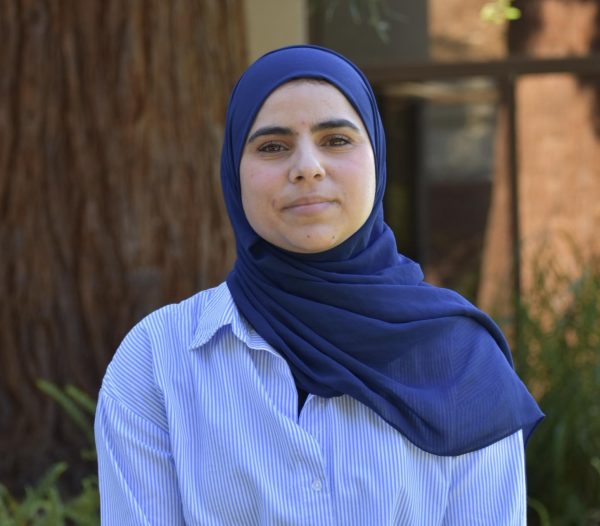New California laws Senate Bill 98 and Assembly Bill 49 – aimed at restricting federal immigration officials’ impact on school families – were signed into law in September by Gov. Gavin Newsom.
What does this mean for Contra Costa College?
Under SB 98, schools must alert students, faculty, and staff when immigration enforcement is present, including the date, time, and location, while keeping personal information private.
AB 49 bars school employees from allowing immigration enforcement officials to enter “nonpublic” areas of a school without a warrant from a judge.
According to district and college leaders, the Contra Costa Community College District has already outlined protocols and procedures that align with the new legislation.
4CD Chancellor Mojdeh Mehdizadeh said that earlier this year, the district shared with employees a six-step guide for what to do if federal Immigration and Customs Enforcement (ICE) officers come on campus. The district and college already follow Student Services Procedure 3026, which bars immigration agents from entering nonpublic areas without a valid court order, warrant, or subpoena.
“Also in February, Police Chief Ryan Huddleston shared a message with the 4CD community reiterating the Police Department’s commitment to Senate Bill 54, commonly referred to the ‘California Values Act’ which prohibits state and local law enforcement from using their resources on behalf of federal immigration enforcement agencies; and Assembly Bill 21, that aims to ensure access to higher education for all students, regardless of their immigration status,” Mehdizadeh said in her email, noting that the district’s police and public safety teams will not assist in enforcing federal immigration laws or detain people based solely on their immigration status.
The colleges have also held “know your rights” workshops for students and community members, she said.
“Each of our colleges also has strong partnerships with community-based organizations that provide legal advice and support to our immigrant community,” Mehdizadeh added. “CCC works closely with Stand Together Contra Costa (STCC) and the Immigration Institute of the Bay Area (IIBA), among others.”
To comply with the new legislation, Mehdizadeh said they will use existing notification systems.
“Our colleges use a campus community notification tool that allows us to instantly broadcast text and email messages to students and employees,” she said. And while district leaders are not aware of any ICE activity on campuses so far, “should ICE agents come on campus, we expect that our employees will follow the protocol set out in the attached guidance, and notifications to students and employees will be made.”
CCC President Kimberly Rogers emphasized that “no student information will ever be shared without proper legal authorization.”
Rogers said CCC issued detailed guidance in December 2024 and February 2025 to help students and employees respond if immigration enforcement appears on campus. “There have been no ICE operations on our campus,” Rogers said. “We did, however, see confirmed activity in Richmond in July and October 2025.”
She added that while the existing policy already aligned with the new laws, “the hardest part is communicating quickly and accurately to prevent panic and misinformation.”
“Unconfirmed ICE sightings build more fear and distrust in our community,” explained Stephanie Figueroa, program coordinator of the Undocumented Student Program. “Unconfirmed ICE sightings should not be shared and are counterproductive to work currently done by non-profits such as Reimagine Richmond and Stand Together Contra Costa.”
Figueroa said that she shares copies of the campus immigration enforcement-related protocols and works to make sure staff and faculty know the protocols.
“I believe this (protocol) already follows and satisfies AB 49. As for SB 98, I am aware the district is currently working on an MOU (contract) with a local immigration rapid response organization,” Figueroa said. “Dr. Padilla will be providing more information to our Dreamers Alliance in our next meeting, Thursday, October 16th,” said Figueroa.
Figueroa explained how faculty and staff might support students on campus who may be struggling with immigration enforcement.
“I would support them by connecting them to our local, free, legal non-profit organizations, Immigration Institute of the Bay Area, and Immigration Legal Defense (findyourally.com),” Figueroa said. “I would also encourage them to speak to their instructors and let them know of their possible deportation, in case they need to be manually dropped by the instructors if they aren’t present after a certain period. This can help the student avoid being stuck with an outstanding tuition bill and allow them to retake their courses if they were to come back to CCC.”
CCC Associated Student Union President Ode Kunthar, expressed enthusiasm for supporting the new legislation.
“I serve as the Bay Area’s Legislative Affairs Director for the Student Senate for California Community Colleges, and SB 98 was one of the bills that we co-sponsored and were very active in supporting. We are also excited about AB49 and further protection of students on our campuses,” said Kunthar.
While student leaders are not aware of any ICE activity on campus, Kunthar said that “one of the ways we have begun supporting our students is promoting anonymity within our student environments: we discourage students using their full name for publicly shared club material.”
Chancellor Mehdizadeh said the district is focused on immigration and how to support students and families.
“Please know that this is a topic that is very important to us and remains in the forefront of our planning processes,” Mehdizadeh said.







Paul DeBolt • Oct 16, 2025 at 6:09 pm
Great job of informing students about this important topic and issue! Congratulations.